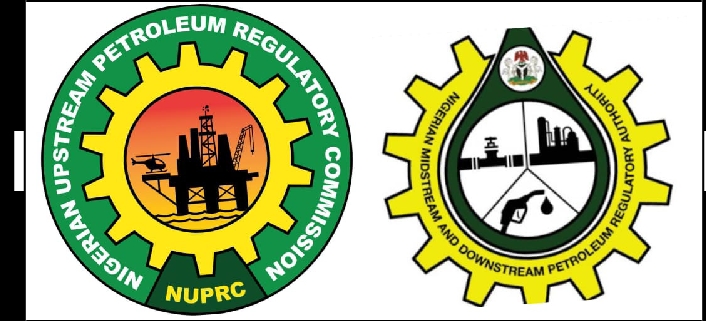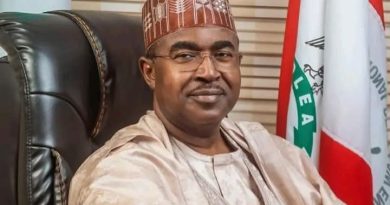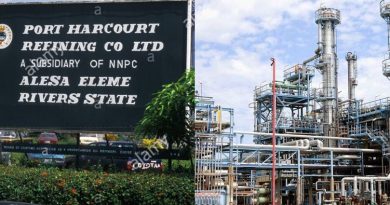NAVIGATING THE STORM: Reassessing Nigeria’s Petroleum Industry Amidst Corruption and Reform
Perspectives with Dr. Iyke Ezeugo
In the late 19th century, John D. Rockefeller faced intense scrutiny as he built his oil empire, criticized for monopolistic practices and exploitation. However, this scrutiny led to deepcut regulatory reforms that transformed the industry. Today, Nigeria faces its own set of challenges in the petroleum sector, marked by corruption, inefficiency, and regulatory failures. The Petroleum Industry Act (PIA) of 2021 represents a significant reform attempt, but key issues remain unresolved.
This article explores these challenges and offers practical solutions to steer Nigeria’s oil industry toward effective and sustainable reform.
1. Governance and Regulatory Framework
Major Issues:
1.1 Overlapping Mandates
The roles of the Nigerian Upstream Regulatory Commission (NURC), and the Nigerian Midstream and Downstream Petroleum Regulatory Authority (NMDPRA), are not well-defined, leading to regulatory inefficiencies.
Key Areas of Overlap and Implications:
– Crude Oil Sales and Production Accounting
– Pipeline Regulation
– Licensing and Permits
– Environmental Regulations and Compliance Monitoring
– Gas Flaring Penalties and Enforcement
– Health and Safety Regulations
– Reporting Requirements and Data Collection
Consequences:
– Bureaucratic inefficiency
– Investor uncertainty
– Increased operational costs
– Higher product prices and taxes, as these costs are passed to the helpless public
Proposed Solutions:
– Clarify roles in the PIA
– Establish stronger inter-agency collaboration framework
– Amend legislation to eliminate overlap
– Implement global best practices, such as centralized regulatory oversight
– Use digital transformation to streamline processes
– Regularly review and update the PIA to address emerging issues
1.2 Regulatory Capacity
The newly formed regulatory bodies, NUPRC and NMDPRA, face challenges in technical expertise, data management, and market oversight.
Proposed Solutions:
– Invest in talent acquisition and training
– Build capacity through partnerships with international regulatory bodies, trustworthy local experts and technocrats
– Leverage technology for better data and process management
Recommendations overview:
– Clarify Mandates: Harmonize roles between NURC and NMDPRA, focusing NURC on upstream operations only and NMDPRA on midstream and downstream activities squarely.
– Capacity Building: Train regulatory staff and adopt modern technologies in their operations.
– Independent Oversight: Introduce an independent oversight committee for monitoring regulatory effectiveness.
2. Fiscal and Financial Management
Identified Issues:
2.1 Complex Fiscal Terms
The fiscal terms under the PIA are complicated and capable of creating implementation challenges, including disputes over taxation and royalties.
2.2 Revenue Leakages
Corruption, illicit oil bunkering, and transfer pricing enforcement issues have led to significant revenue losses.
Proposed Solutions:
– Simplify fiscal terms
– Strengthen enforcement mechanisms
– Increase transparency and accountability
– Build capacity in regulatory and financial oversight
Recommendations overview:
– Simplify Fiscal Framework: Streamline fiscal terms and provide comprehensive guidelines.
– Strengthen Financial Controls: Implement robust financial auditing mechanisms and use technology for better transparency.
– Public Disclosure: Mandate regular public disclosure of financial statements by oil companies, mirroring the transparency in pricing or and discosure requirements in similar regulated sectors.
Notes:
Private companies providing essential public services like utilities, transportation, and healthcare are required to mandatorily disclose their accounts and prices in many countries, including Nigeria and the US. This ensures:
– Transparency and accountability
– Consumer protection
– Regulatory oversight
– Public interest
Examples include where this is practiced partly or fully:
– Nigerian Electricity Regulatory Commission (NERC), requiring electricity distribution companies to publish tariffs and financial statements
– US public utilities (gas and electric companies) being subject to price regulation and financial disclosure
This practice is aimed at promoting fairness, competition, and quality of life for citizens.
3. Market Competition and Pricing
Identified Issues:
3.1 Potential Monopolies
Entities like the Nigerian National Petroleum Corporation (NNPC) and Dangote Refinery may hold too much market power, stifling competition.
3.2 Opaque Pricing
A lack of transparency in pricing creates mistrust and fosters potential exploitation.
Proposed Solutions:
– Enforce anti-monopoly laws and establish a market watchdog
– Introduce mandatory price disclosures across the supply chain – end-to-end public price display: crude selling price to refineries, refined products’ prices to depots, to distributors, and to filling stations (just in the same manner selling prices to end-users are displayed)
– Promote competitive bidding for licenses and contracts
4. Environmental Protection and Community Development
Identified Issues:
4.1 Inadequate Environmental Oversight
The environmental provisions in the PIA lack robustness, particularly in enforcing compliance and penalties.
4.2 Community Benefits
The current community development frameworks are insufficient and not well-implemented.
Proposed Solutions:
– Strengthen environmental regulations and impose severe penalties for non-compliance
– Develop a community engagement framework that ensures rightly structured local participation in decision-making and benefit-sharing
5. Corruption and Transparency
Identified Issues:
5.1 Persistent Corruption
Corruption continues to plague the sector, weakening governance and the effectiveness of reforms.
5.2 Lack of Transparency
There is a significant lack of transparency in procurement, revenue management, inter-sector trade, and contract allocation.
Proposed Solutions:
– Establish an independent anti-corruption unit within regulatory bodies that proactively monitors and effectively collaborative with statutory bodies.
– Protect whistleblowers and ensure strict enforcement of anti-corruption laws
– Implement transparent procurement, trade and contract-awarding processes
6. Infrastructure and Security
Identified Issues:
6.1 Infrastructure Deficiencies
A lack of investment in infrastructure has hampered operations in the oil and gas sector.
6.2 Pipeline Security
Ongoing vandalism and sabotage continue to disrupt supply and increase costs.
Proposed Solutions:
– Increase infrastructure investment and foster public-private partnerships
– Strengthen security measures, leveraging local communities for collaboration
Additional Considerations
Monopoly Concerns and Market Control
– NNPC Dominance: NNPC should divest non-core assets to encourage market competition.
Sabotage and Market Manipulation
– Supply Disruptions: Enhance security and market surveillance to prevent sabotage and market manipulation.
Pricing Transparency and Public Confidence
– Trust Deficit: Mandate transparent pricing regulations to restore public confidence.
Refineries and other downstream operators Cooperation
– Market Impact: Closely monitor the market impact of Refineries and operators cooperation within the chain to avoid monopolistic and price collusion tendencies.
– Cross-Border Smuggling: Strengthen regional cooperation to combat smuggling and market distortion.
Sustainable Development
– Sustainable Practices: Promote sustainable practices to ensure long-term viability of the sector.
Ultimately, navigating the complexities of Nigeria’s oil sector requires more than identifying problems— it demands actionable solutions. Like the regulatory reforms that reshaped Rockefeller’s era, Nigeria must embrace innovation, transparency, and practical reforms to foster a transparent, efficient, and equitable petroleum sector. These steps are essential for promoting sustainable economic growth. This, hopefully, marks the beginning of the fading if my voice in this oil sector crisis.
As the day breaks and the clouds gather with ominous intent, I bid farewell to my vocal crusade against the oil sector crisis that has been lovingly romancing the Nigerian masses to strangulation. It’s been a blast (literally, in some cases) watching the country’s wealth evaporate like petrol fumes. Alas, all that needed to be said has been said – and roundly ignored. Now, it’s time for the grand finale: sitting back and watching the crisis persist, because, why bother changing anything when the landlord’s is comfortable with the state of the house?
Dr. Iyke Ezeugo is a Forensic Researcher, Social Impact Expert, and Satirist who uses his insights to challenge the status quo, ignite debates, and inspire fresh perspectives on public affairs.




